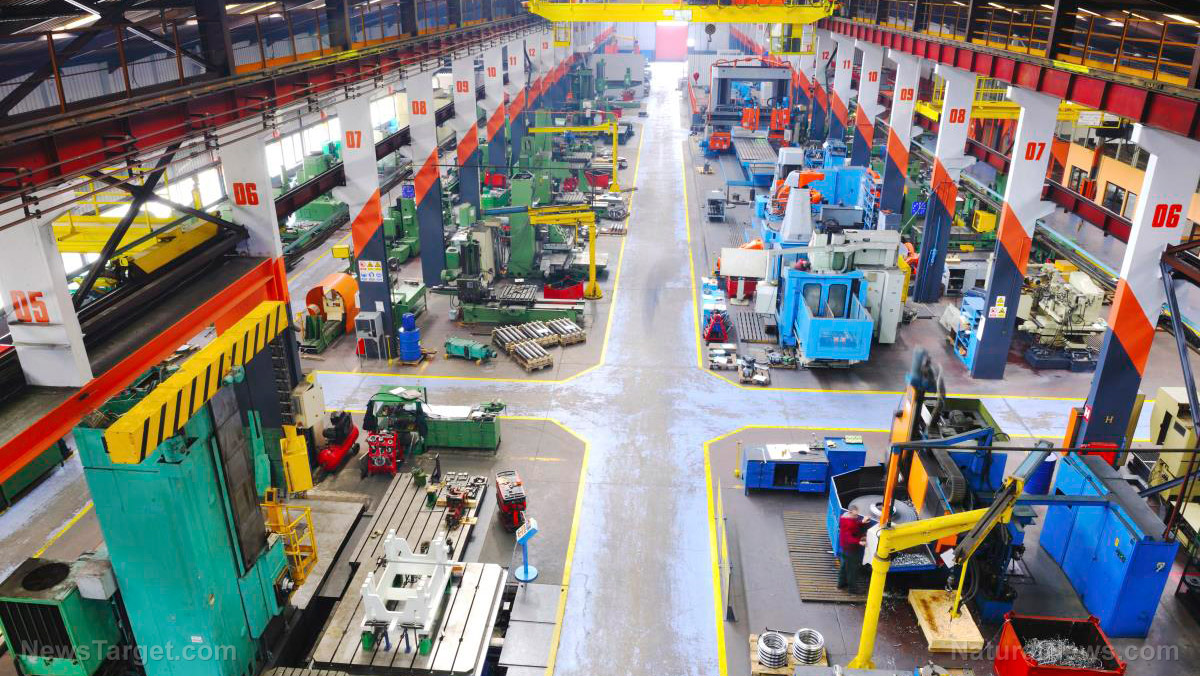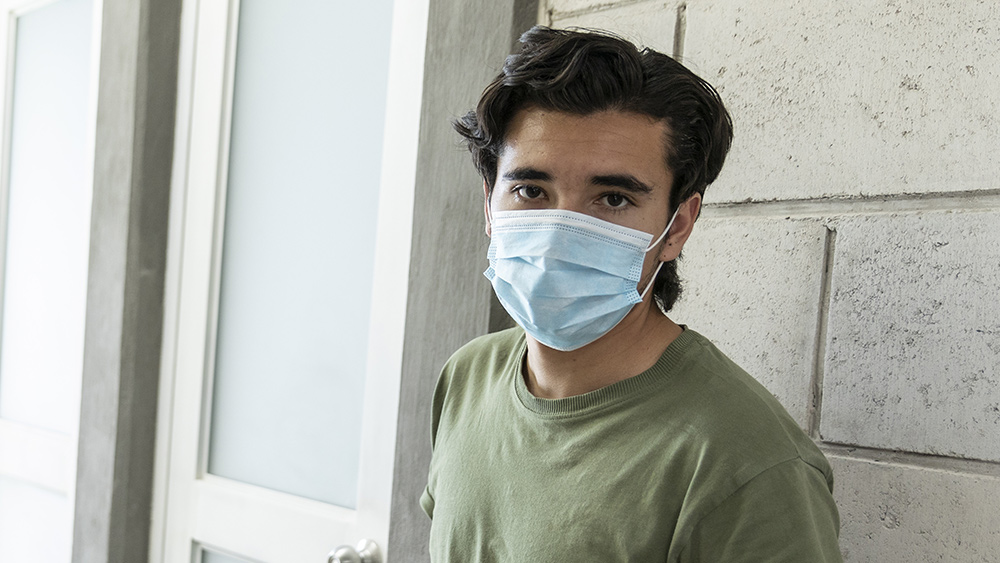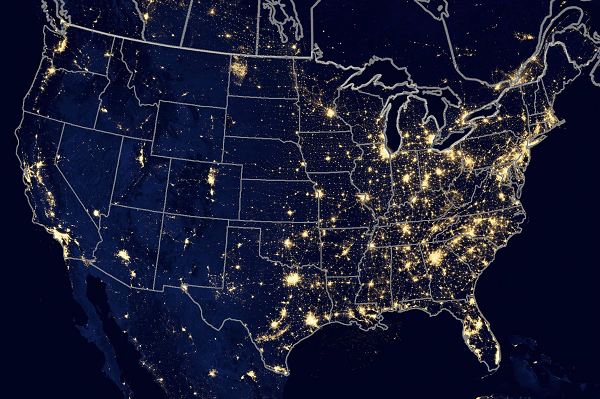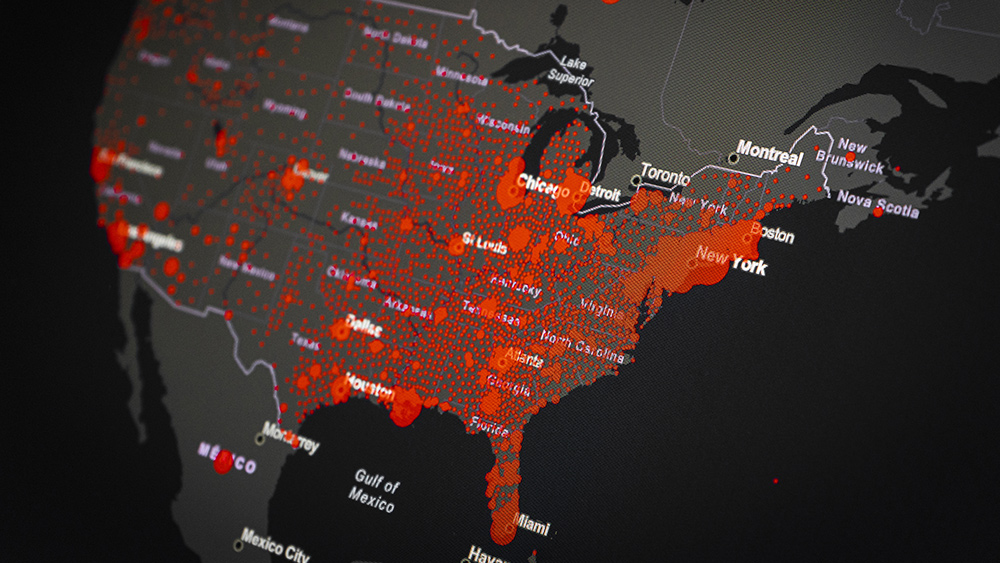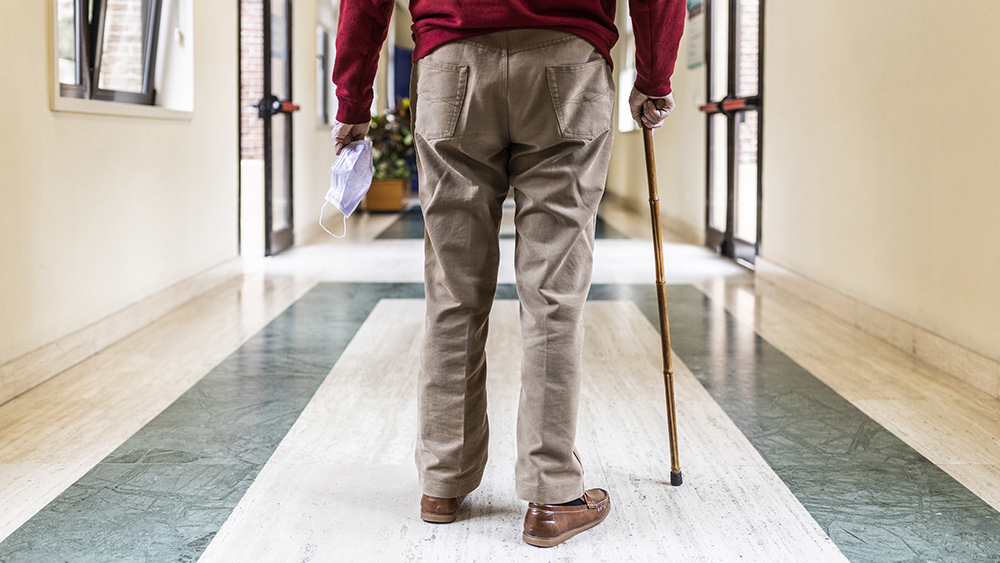Anti-lockdown protests might be spreading the coronavirus
05/19/2020 / By Franz Walker

Across America, people are protesting the various lockdown measures put in place to slow the spread of the Wuhan coronavirus (COVID-19). However, new data seems to show that these same protests are helping spread the killer disease.
According to a campaign group Committee to Protect Medicare, cellphone location data suggests that demonstrators at anti-lockdown protests are often traveling hundreds of miles to events, often crossing state lines, to join protests. The group says that this widespread movement risks helping spread the virus among protesters in various states.
Tracking the movement of protesters
The campaign group captured the cellphone data — which they claim is anonymized — from opt-in cellphone apps with the help of campaign firm VoteMap. Data scientists at VoteMap used the data to determine the movements of devices present at protests in five states — Michigan, Illinois, Wisconsin, Colorado and Florida — between late April and early May.
While the data only showed movement within the states, VoteMap executive-vice president Jeremy Fair said that many devices were seen to reach state borders, indicating that their owners crossed them.
The data comes as reports have come in of anti-lockdown protesters catching the virus. In late April, one of the leaders of North Carolina’s anti-lockdown protests tested positive for the coronavirus.
“When they started doing antibody testing (select labs) I went and had one done just out of curiosity to see if what I had in Feb was COVID,” posted Audrey Whitlock on the Facebook page of ReOpen NC. “The test came back positive for COVID and negative for the antibodies, so I had a CDC test performed.”
Whitlock, one of the leaders of ReOpen NC, says that she has since self-quarantined in her home ever since she tested positive for the disease.
“After an abundance of caution I notified my primary care physician who advised me on what to do, and I have been in my house ever since,” she added.
Prior to this, experts had already warned that the rallies could serve to actually help spread the disease. In a tweet, Dr. Eric Feigl-Ding, an epidemiologist at the Harvard T.H. Chan School of Public Health, stated that he expected a surge of protest-related cases within a month after the protests.
2500 anti-lockdown rally in Olympia Washington. I predict a new epidemic surge (incubation time ~5-7 days before onset symptoms, if any, and transmission to associates around that time, even among asymptomatics)… so increase in 2-4 weeks from now. Remind me to check. #COVID19 pic.twitter.com/OLiGnQRkeL
— Eric Feigl-Ding (@DrEricDing) April 20, 2020
While the data suggest that protests may be epidemiologically significant events, Committee to Protect Medicare chair Dr. Rob Davidson said that “it’s hard to draw a straight line between devices, individuals at these protests, and cases.”
However, Davidson reiterated that the protests still put attendees at risk.
“The behavior we’re seeing at protests carries a high risk of infection,” he added. “We can see protesters are going from a highly concentrated event and then dispersing widely.”
Studies show that gatherings help spread viruses
That protests could help spread the coronavirus shouldn’t come as a surprise. Previous research has shown that mass gatherings, such as protest rallies, are potential breeding grounds for respiratory illnesses like COVID-19.
These studies have noted how big international events that draw crowds from all over the world, such as the Olympics, the World Scout Jamboree and the Hajj, usually result in outbreaks of respiratory illnesses among attendees.
What makes it worse in the case of these lockdown rallies, however, is the fact that most protesters aren’t wearing any sort of protective equipment. (Related: Pro-Trump, anti-lockdown protesters demand end to tyranny while refusing to wear masks: Here’s what happens next.)
The lack of protection only makes anti-lockdown protesters much more vulnerable to the disease, facilitating its spread. By doing so, these rallies give authorities even more ammunition to halting them, taking away people’s right to protest, all in the name of stopping the pandemic.
Learn more about the ongoing coronavirus outbreak at Pandemic.news.
Sources include:
Tagged Under: coronavirus, covid-19, disease, Flu, government, infections, outbreak, pandemic, protest, protests, rally, second wave, superbugs












